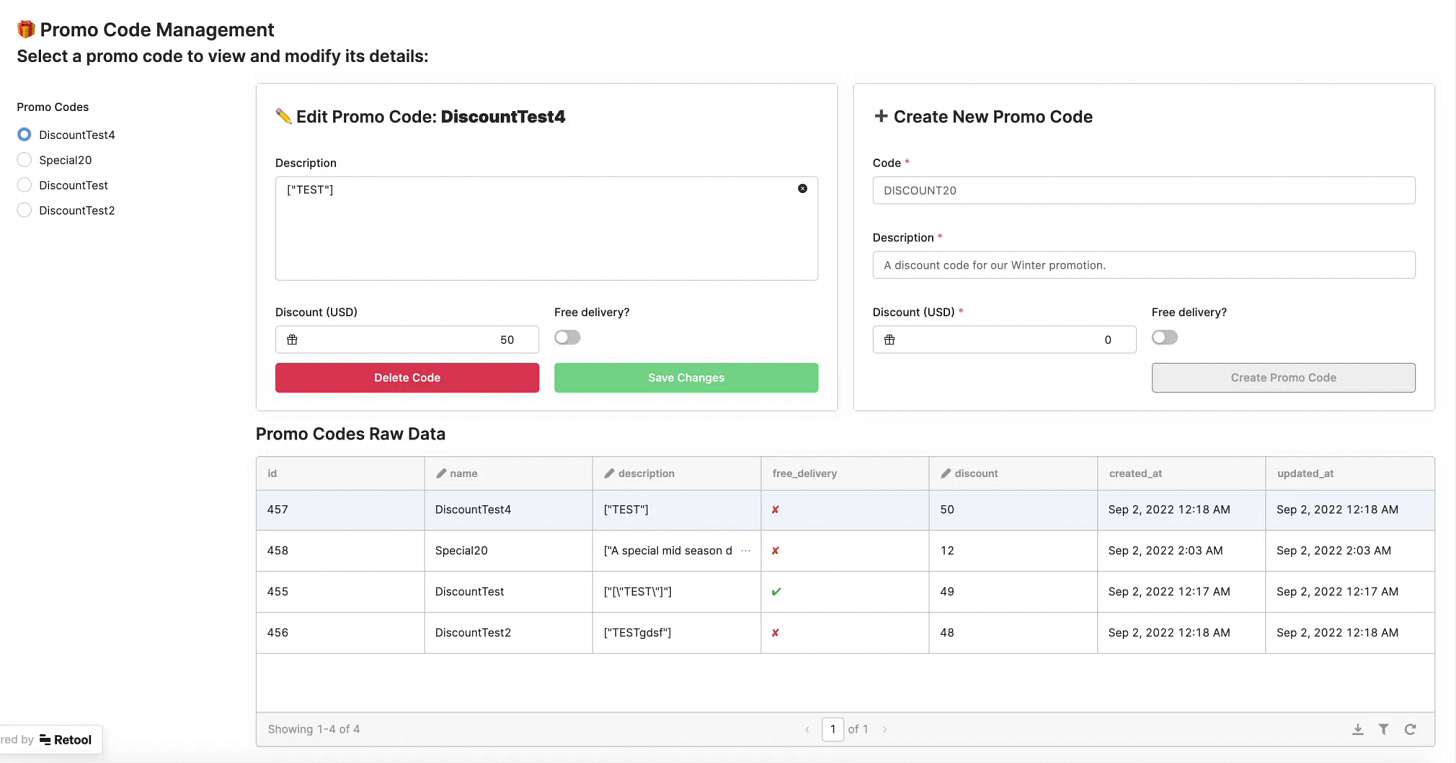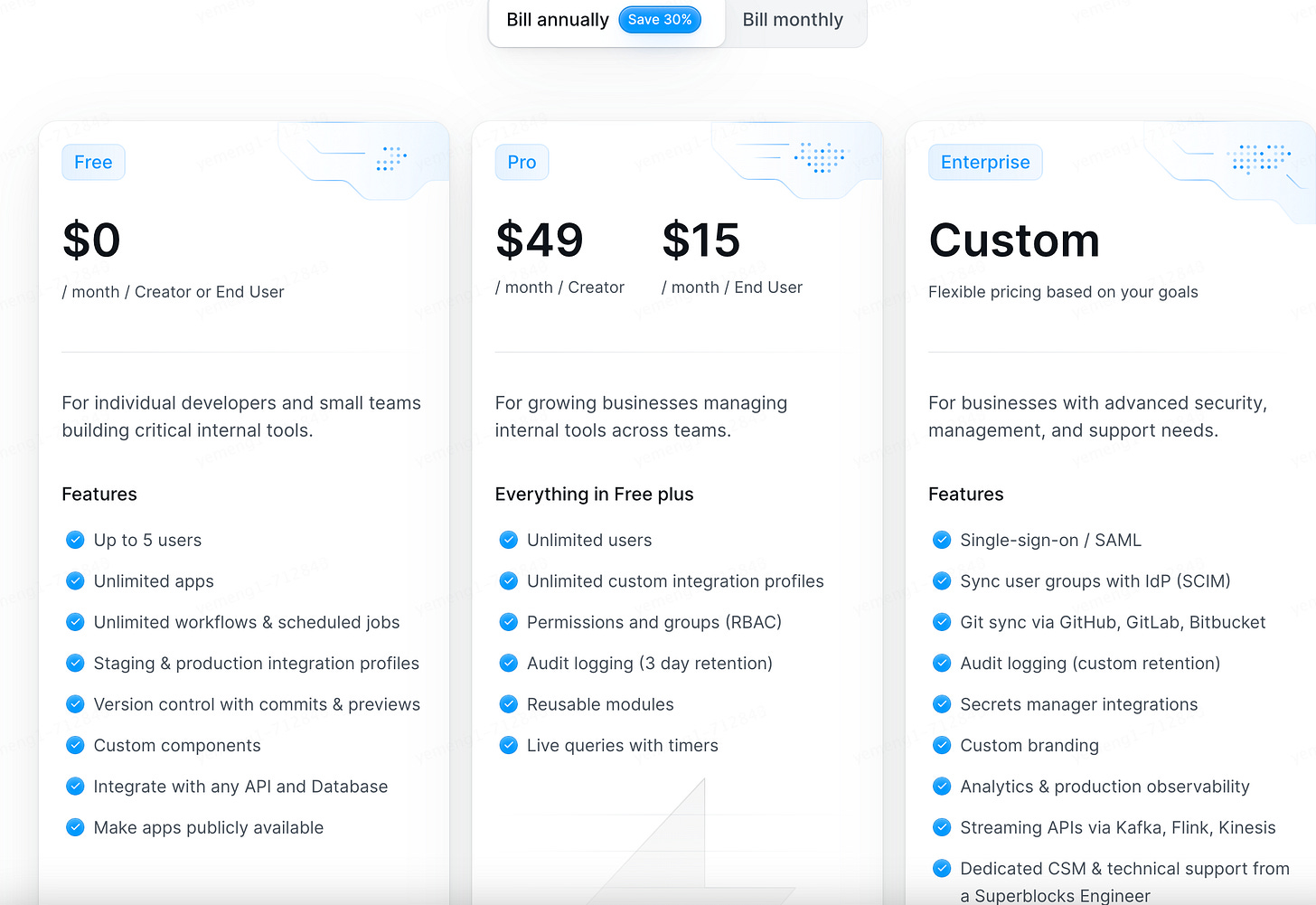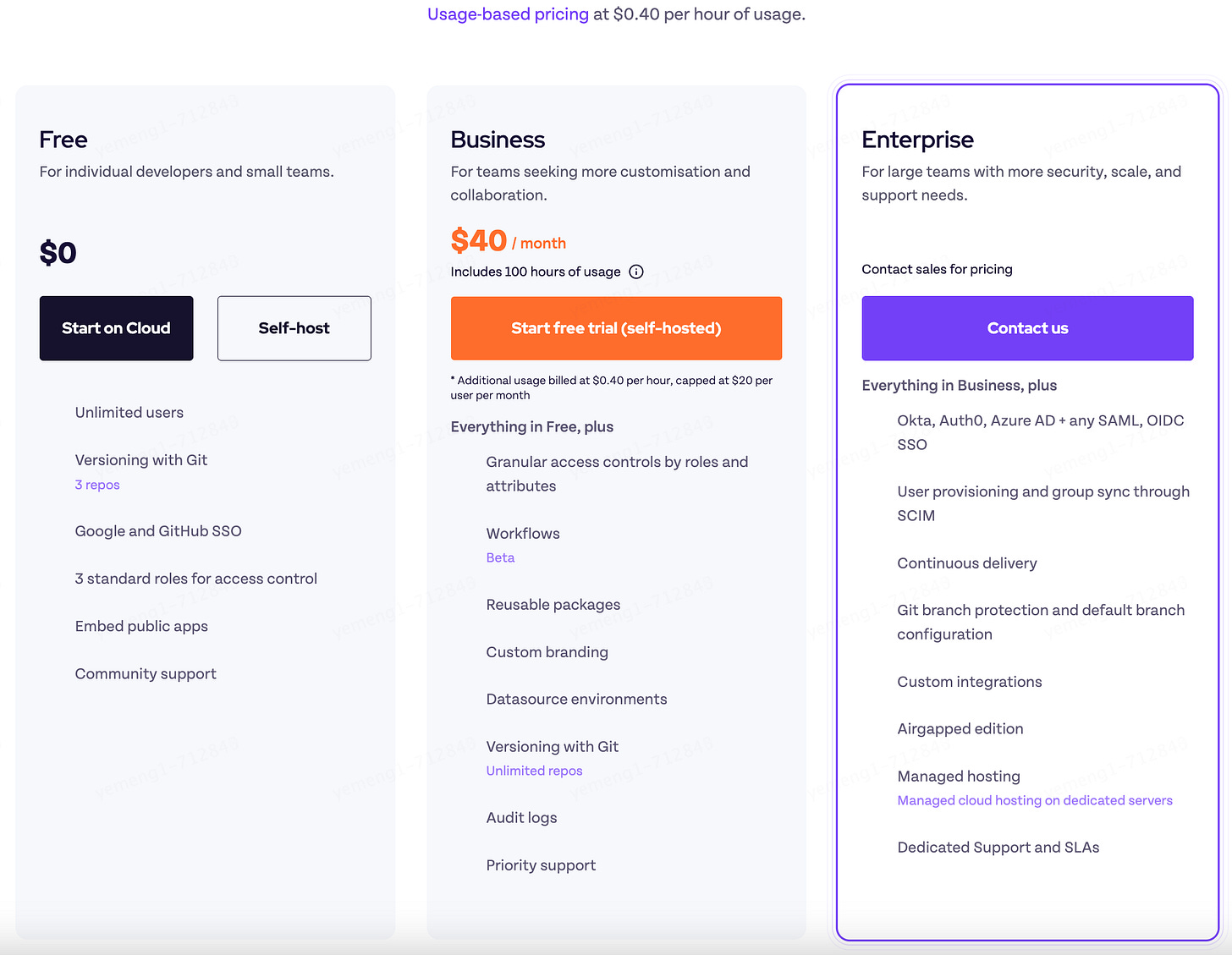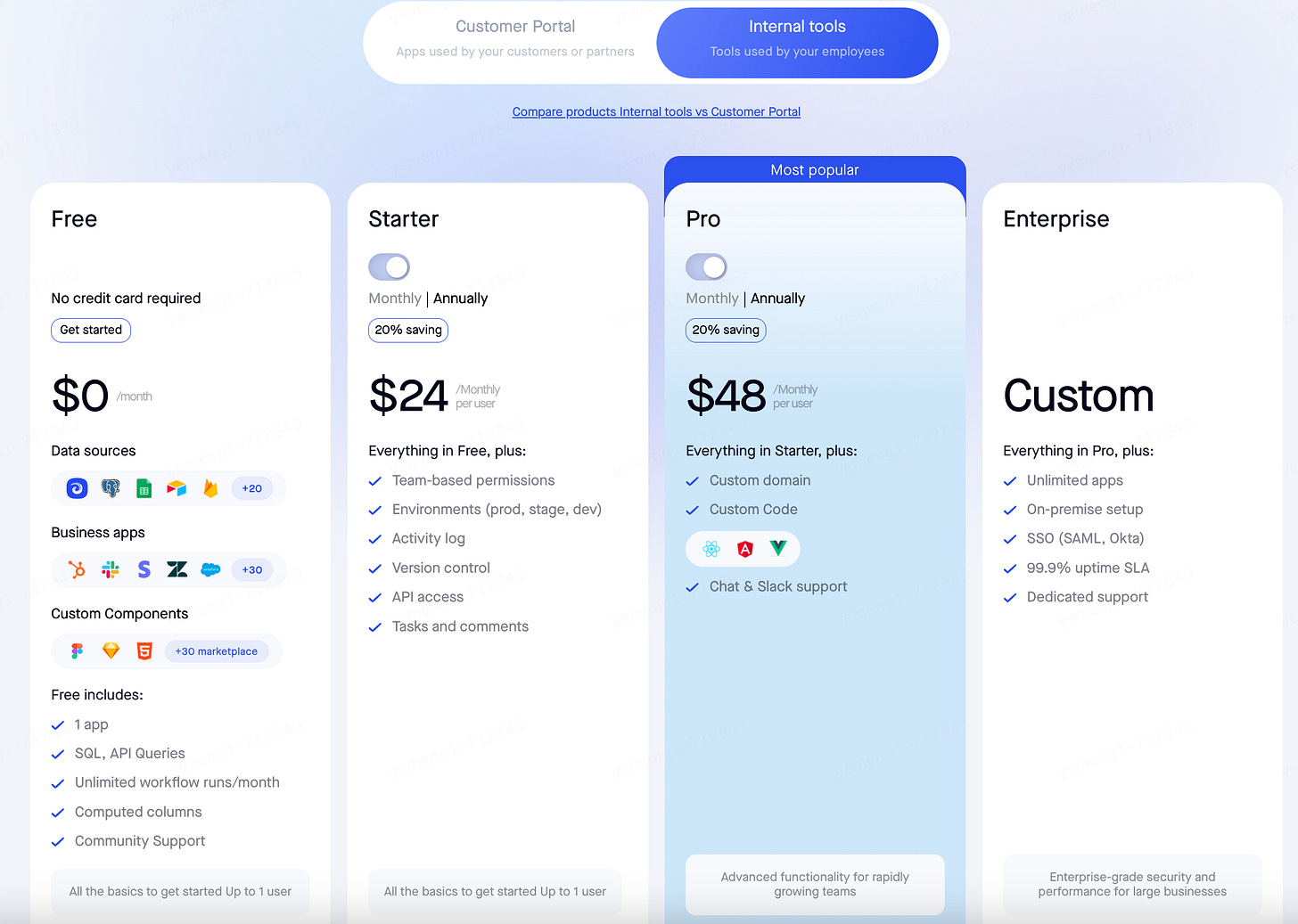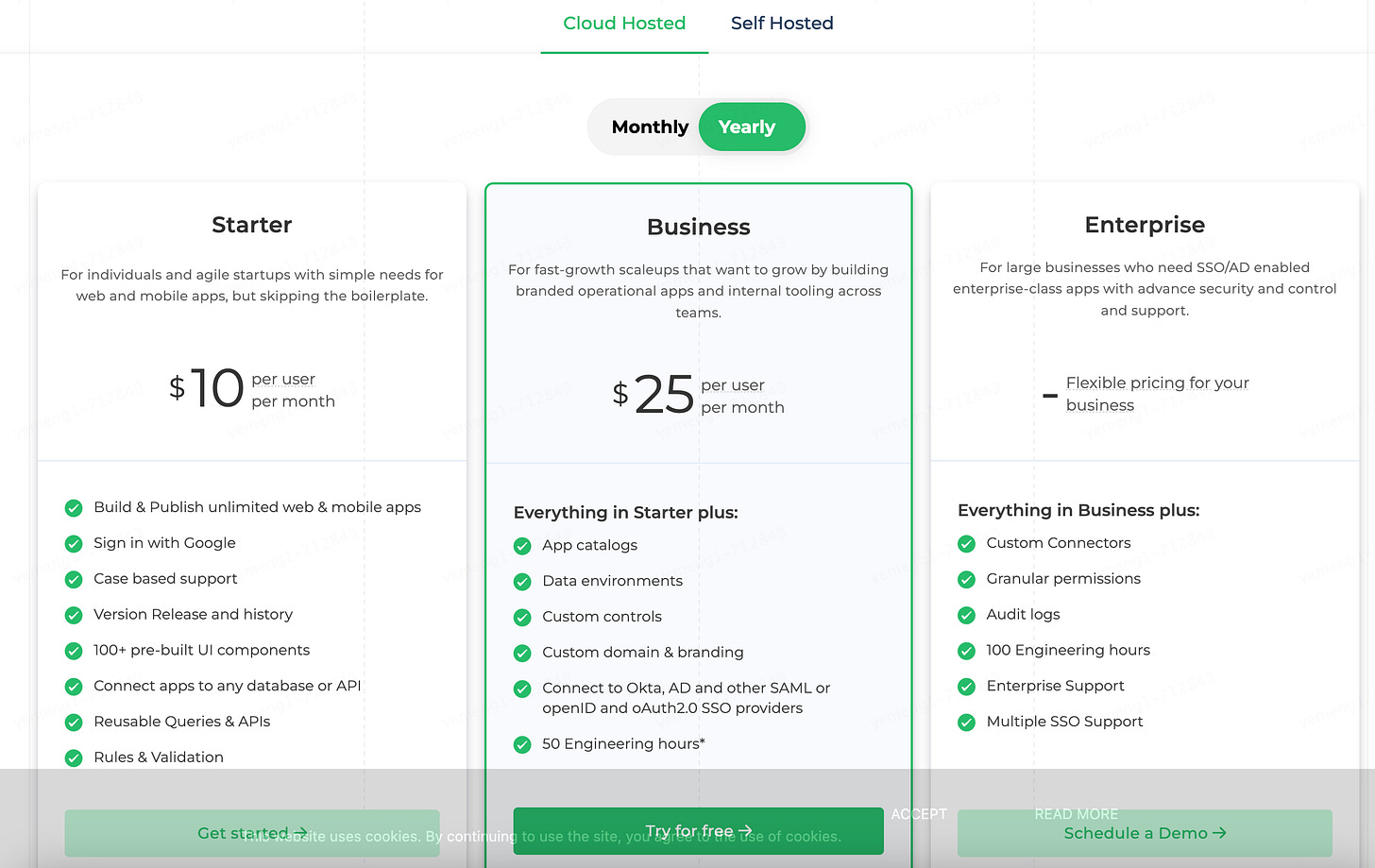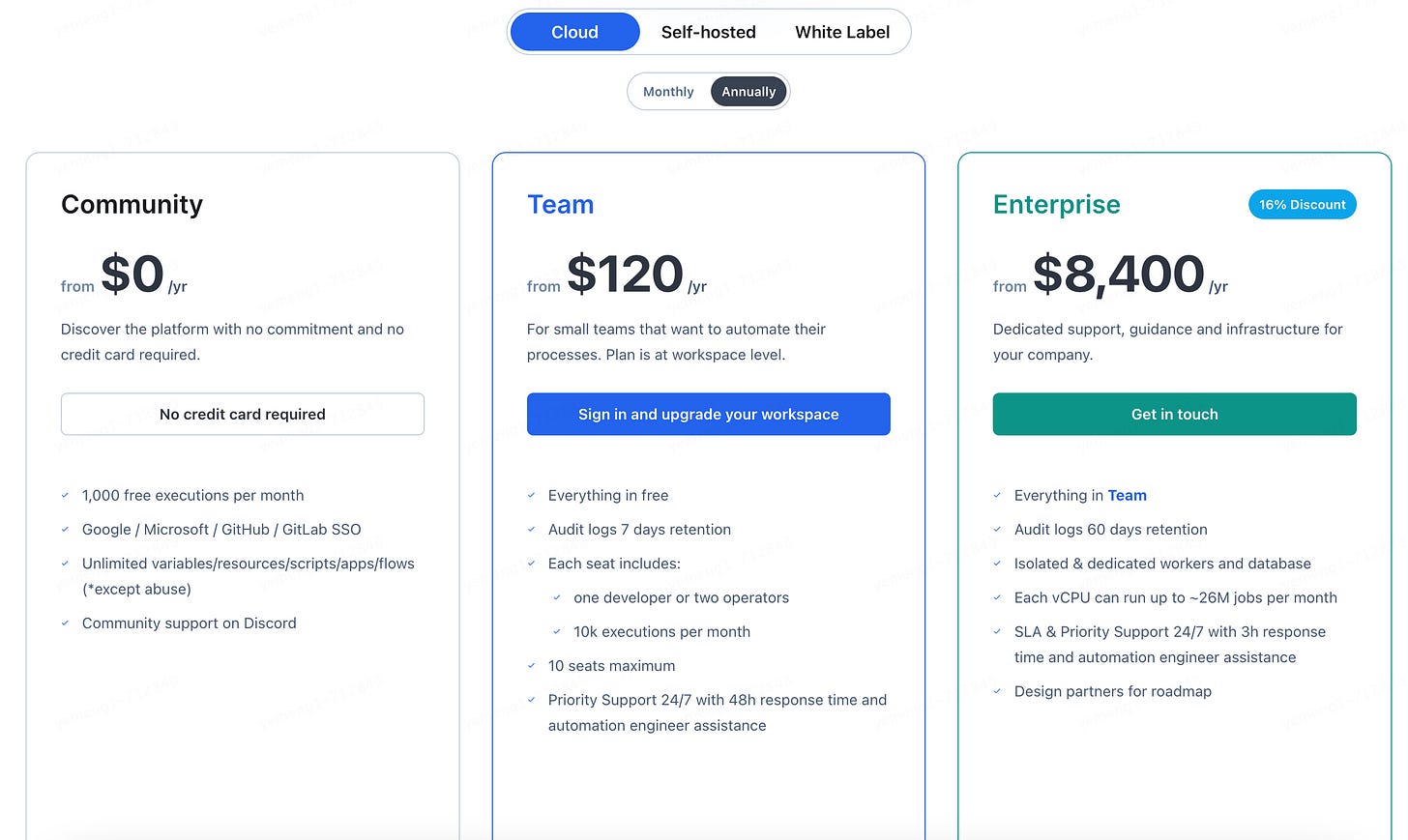retool basics - what is retool? what is Micro SaaS?
Retool Background
Founded in 2017 by David Hsu and have New York and San Francisco offices, Retool provides a development platform where internal tools can be created, with the goal of helping people without any programming knowledge to create tools to solve their own business problems.
The platform is designed to be very easy to use, have the most comprehensive ui component library designed for internal apps, such as forms, lists, charts, tables, paging, navigation, and developers can also use JavaScript and APIs to create personalized applications that support access to major databases, REST APIs.
Retool can build workflows, mobile app, AI app, custom portals. in addition, Retool hosted PostgreSQL database, mail delivery service, file storage service, vector database, which greatly reduces the cost of learning and getting started
Retool Customers
Retool has served clients ranging from startups to Fortune 500 companies in a variety of industries including finance, retail, gaming, media & entertainment, cryptocurrency, automotive, and more, with clients including Amazon, Coinbase, Unity, Mercedes-Benz, Lyft, OpenAI, snowflake, and the NFL.
Retool History
2022-07-28 Series C2 raised $45M at $3.2B valuation
2021-12-22 Series C raised $20 million
2020-10-20 Series B raised $50 million
2019-04-01 Series A raised $25 million
2017-09-25 Raised $1 million in a seed round
What can Retool be used for?
Retool is currently used to develop internal tools, which are characterized by a greater emphasis on functionality rather than style.
Let me give a few page examples
Comparison of retool with other tools
There are other options for developing internal tools besides Retool, such as Appsmith, Tooljet, Internal, Budibase, Superblocks, UI Bakery, jet admin, DronaHQ.
Why Retool?
Reasons to choose Retool
iteration speed
Updated on average once every 2 to 3 weeks, Budibase, Tooljet, Windmill
Updated on average once a month , DronaHQ
Updates are erratic, sometimes one month, sometimes two months, Jet admin
Doesn't have a public changelog, Superblocks, Dropbase
A faster iteration pace is a reflection of the vendor's responsiveness to customer needs, and Retool is in the top tier from this perspective.
Learning curve
Ease of use can be measured by the time it takes a novice to learn how to use the product in the following ways
1. whether the UI interaction is clear and simple
2. whether there are tutorials for beginners
3. whether there are templates for reference
4. whether the documentation is rich
5. whether there is an active community for communication and learning, common problems can be found
6. whether there is customer service or technical support
I have used Retool, Appsmith, Tooljet, this Retool do the best, Tooljet second, Appsmith worst.
Component library
Data as of Apr 9, 2024, obtained from each product's website
Retool has 100+ components
UI Bakery has 75+ components
Superblocks has 25+ components
Budibase has 40+ components
Appsmith has 40+ components
Tooljet has 50+ components
Jet admin has 50+ components
DronalHQ has 150+ components
Windmill has 60+ components
Retool is in the top tier of components
Open source or not
Closed source: Retool, UI Bakery, Superblocks, Jet admin, DronalHQ, Dropbase
Open source: Budibase, Appsmith, Tooljet, Windmill
Historically there have been successful examples of open source or closed source software. One thing to keep in mind is that open source is not the same as free, and behind open source is the need for commercial companies to support it, and open source software needs to find an efficient business model in order to succeed.
Open source software typically has the following drawbacks
High learning costs, poor ease of use
The ui interface is ugly and unattractive
Poor documentation
high hidden costs (software customization, Software maintenance)
lack of technical support
No one continues to maintain the project
The advantages of open source software are low customer acquisition costs (Easy to gain market share) and easier to attract good talent to speed up software iteration.
For enterprises, prefer open source software, which can enhance the controllability
Open-sourcing code is just a competitive strategy; ultimately, it's all about whether the software continues to create value for the customer and creates a competitive barrier.
In a usage scenario such as internal tool development, it is more important to roll out new features and components faster and maintain ease of use. Therefore, there is no advantage or disadvantage here.
product architecture
workflows:
web apps
mobile apps
custom portals
AI actions
Databases
retool has the most features
Pricing
I'm only comparing cloud-based annually prices
UI Bakery
Superblocks
Budibase
Appsmith
Tooljet
Jet admin
DronalHQ
Retool
Windmill
Dropbase
Almost everyone offers a free plan, the business plan is basically $50 a month for developers and $15 a month for end users.
My opinion, retool price is still expensive, end user (people who use the app, not developers) should be $0.2 a month.
The price is cheap enough to attract people to use retool to develop apps, otherwise why don't you use react or vue, it's very convenient to write code directly and deploy it to vercel.com!
complex applications
Complex applications typically require these capabilities
1. deploy multiple environments, such as test, pre-release, and production environments, so environment switching capabilities are needed
2. Custom ui components
3. Versioning. You can publish and rollback
4. The app can be split into reusable multiple modules(codes)
5. need to support the reuse of query (code snippet).
Based on the above 5 dimensions
Environment switching capabilities: UI Bakery, Superblocks, Jet admin, DronalHQ, Retool.
custom UI components: UI Bakery, Superblocks, Tooljet, Jet admin, Retool
versioning capabilities: UI Bakery, Superblocks, Appsmith, Tooljet, DronalHQ, Retool
UI component reuse support: Retool
Retool and DronalHQ support query (code snippet) reuse.
Retool is the only one that meets the above stringent requirements.
enterprise features
1. Git synchronization
2. Fine-grained permissions management
3. log auditing
4. Customized single sign-on
5. website statistics
6. White Label
7. Private or hybrid cloud deployment
Only Retool and Superblocks provide comprehensive support for the above feature
Retool supports private deployment and Superblocks supports hybrid cloud deployment (data is stored at the customer's premises and the portal is a cloud service)
What is micro SaaS?
SaaS, is the abbreviated name of Software-as-a-Service, meaning cloud software, that is, through the Internet to provide software services, before we use the software, you need to download or install through the CD-ROM, some software even need to buy a special server to install, if there is a function or a security update, You need to install the update manually.
SaaS software is web-ready and always up-to-date!
Micro SaaS is a SaaS business that focuses on a niche market (refers to certain market segments ignored by the head enterprises in the market, for example, milk powder can be subdivided into a lot of markets according to age groups, raw materials, milk quality), focusing on solving specific problems for specific groups of people, developed and operated by 1 person or a small micro-team, usually a small tool or plug-in. SaaS made by industry giants solves 80% of the problems, while micro SaaS can solve the remaining 20%.
There are many micro SaaS, such as
Pikaso generates nice and simple twitter images
Super turns Notion pages into websites
WordArt is an online word cloud generator that enables you to create amazing and unique word clouds with ease
Overleaf is an online LaTeX editor that anyone can use
We can use retool to develop micro SaaS app, use retool to Build a Profitable Business.
Summary
I wrote this article on September 26, 2022. Today, I updated the content of the article. During this period, ChatGPT appeared and AI left a deep impression on people. Some companies have stopped providing build internal app services, such as airplane.dev and internal.io. Some new companies are coming out to replace these services, such as dropbase.io, windmill.dev.
In my opinion, only the tools that really help people to solve the problem and reduce the cost will survive





